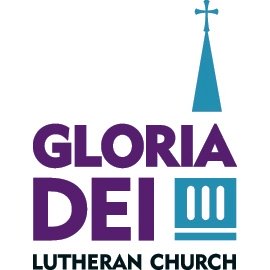 by Amy Hinrichs
by Amy Hinrichs
After the ninety-five theses was posted in 1517, Martin Luther wrote a tract called “Freedom of a Christian”, which describes his faith, and is a goodwill letter to the pope in Rome. No reaction has been recorded from the pope at that time, but we have in his tract a definite call to a duty and an explanation for many Christians of how to live a faithful life.
Luther says: “A Christian is a perfectly free lord of all, subject to none. A Christian is a dutiful servant of all, subject to all.”
He explains that these seem to contradict each other, but that they don’t. We should consider ourselves as having “the inner and outer man”, a person believing and thinking from within, with righteous purpose, free lord of all. The inner person has clear, Christlike personal goals, and the outer person acts ith purpose doing what is right and serving, as his inner self commands.
The people of this time were used to having someone else prescribe their work. They did not feel free, able to act on their own. Luther felt if all were given this freedom, that (man)people would elevate their behaviors, as they knew would benefit all. Servitude for others and your community would be what all strove to do, lifting up themselves, but knowing that it lifted everyone.
The inner person can have the most lofty goals and means to believe in the very best of actions for herself, her family and community but if the outer person does not comply with those ideals, of what use is this? Martin Luther really was in a personal conflict, as his personality was torn between the outer world of waste, personal gratification, hedonistic tendencies. He saw the true actions of the outer person not always choosing healthy food, good habits, respectful behaviors. His inner person needed to be balanced by an outer person of servitude and good will.
Martin Luther thought the Word would be the way to guide this inner person to have the ideals and sustained goodness to counteract the wickedness that can appear in the outer person. We, although encompassing both of these, could use the Word to return our “outer persons” to a state of service and goodness.
We know this today. We know that goodness comes from within, from an “inner person”. We see it modeled in the best leaders who do what they say. Trust rises each time, as the person is honest and tries again. We recognize a guidance from within, maybe the Word as Martin Luther knew was his guide, or a code of respect and mutual care for others.
I’m hoping you will vote this November 6 for leaders we can trust. We want people who can balance their inner and outer selves for the good of the community. We want leaders for whom service to others is common, and where everyone is welcome.
To phone bank for this election, sign up at the ISAIAH offices or use this link.
ISAIAH Community Collaboration for Justice and Dignity
2356 University Ave West Suite 405
St. Paul MN 55114

